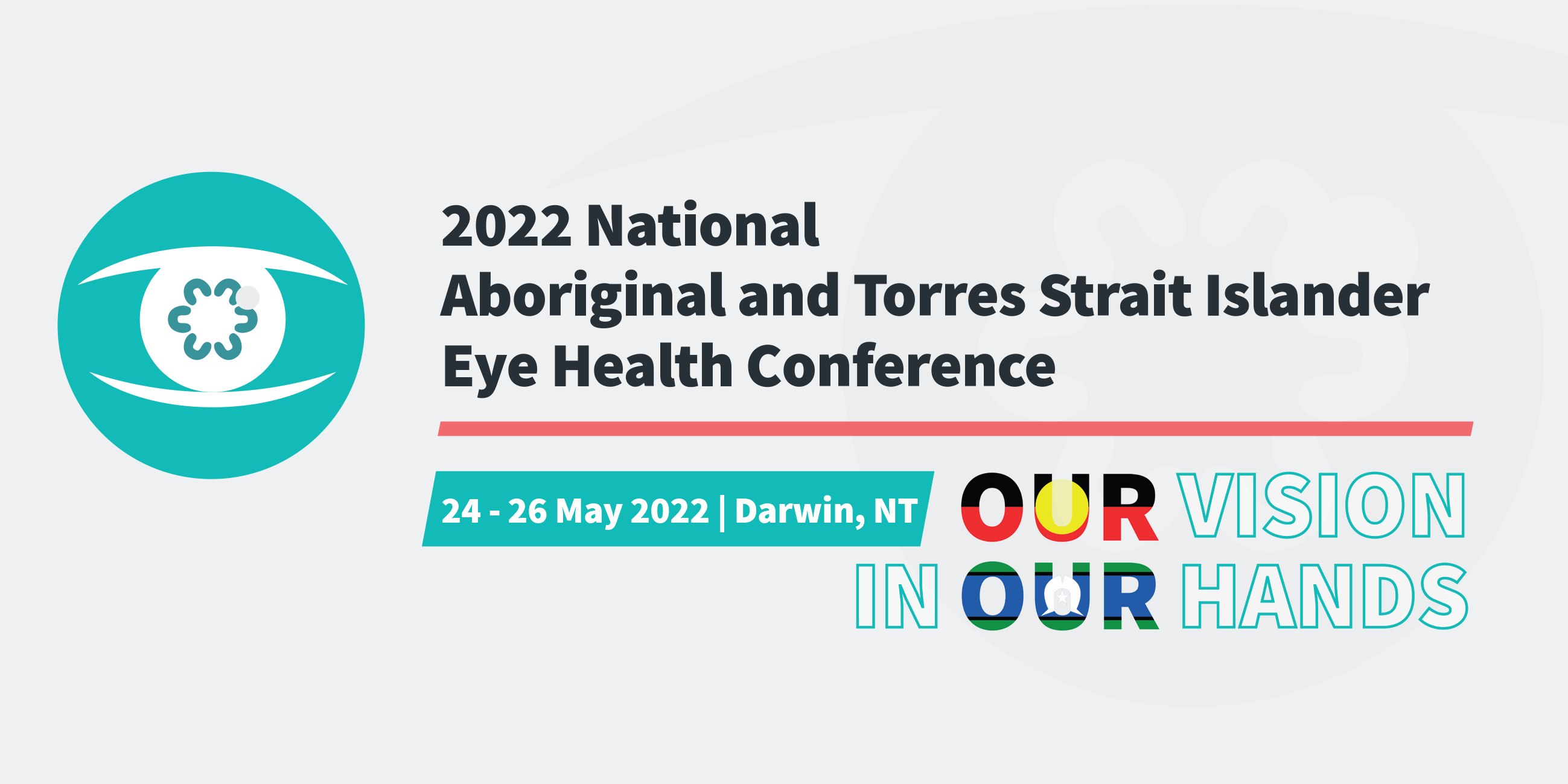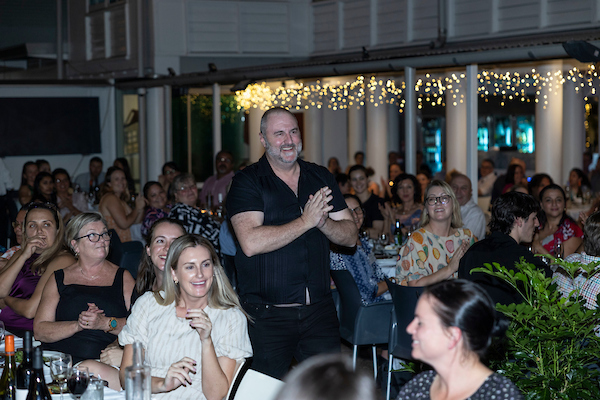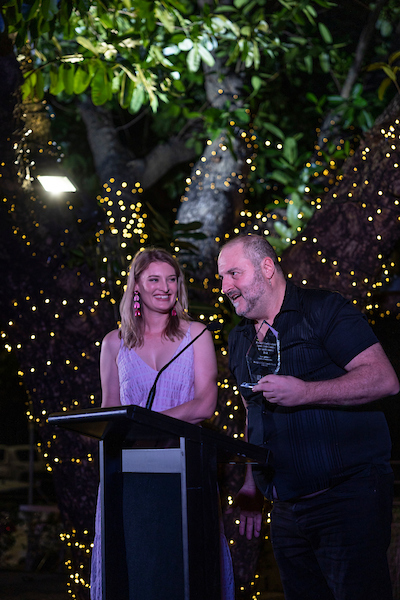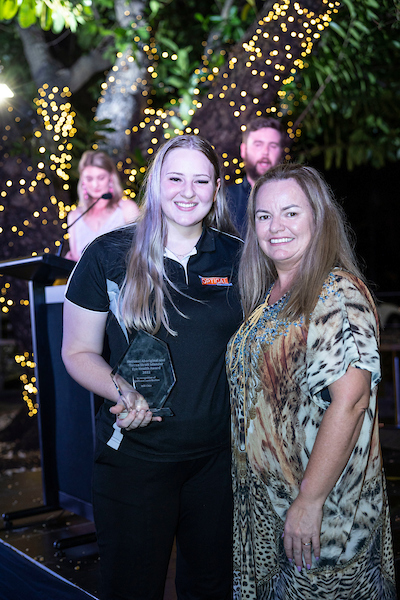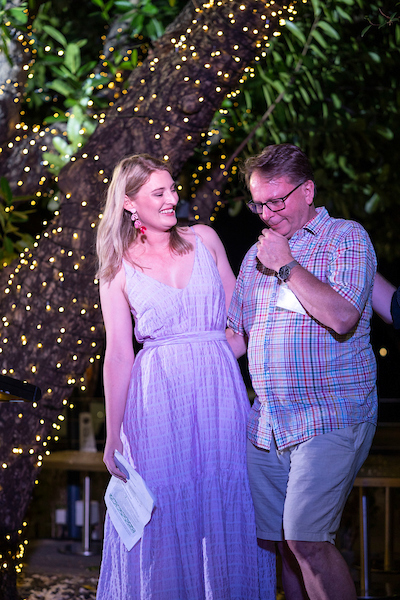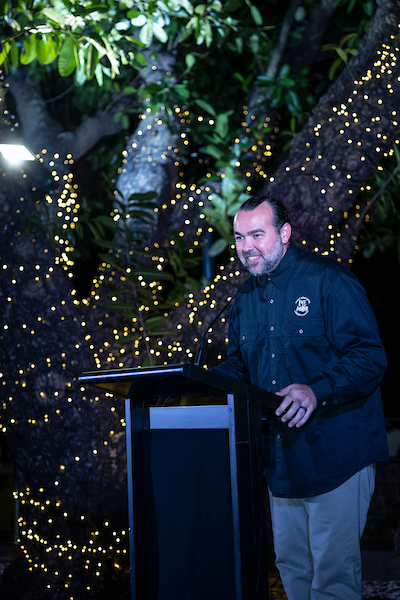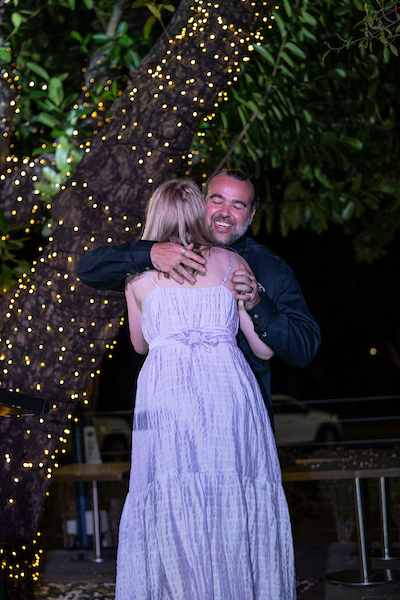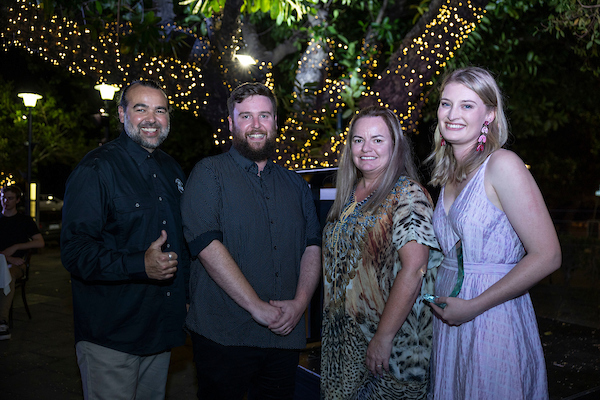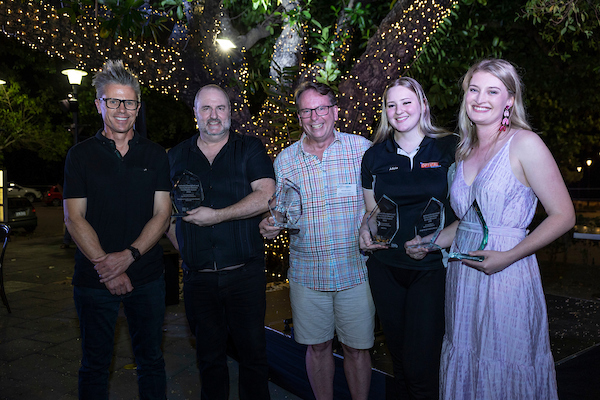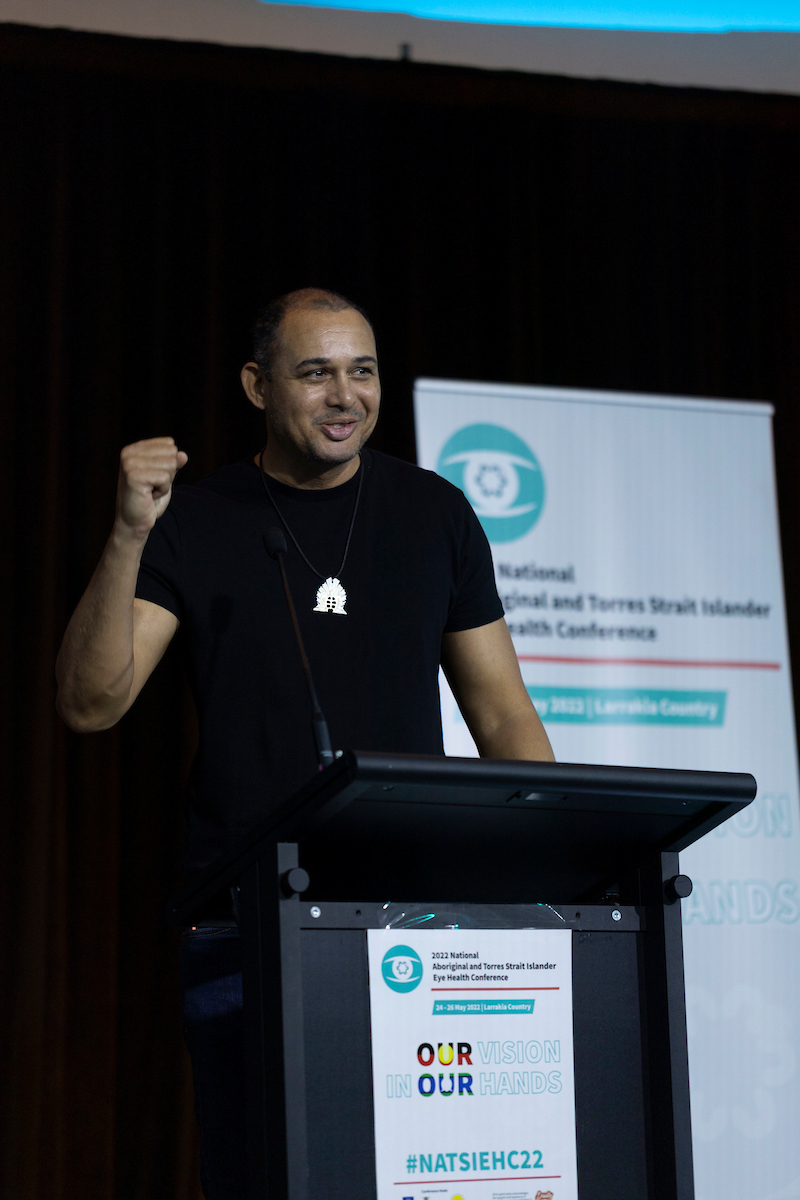2022 National Aboriginal and Torres Strait Islander Eye Health Conference
2022 National Aboriginal and Torres Strait Islander Eye Health Conference
Welcome
Indigenous Eye Health (IEH) at the University of Melbourne are pleased to announce the 2022 National Aboriginal and Torres Strait Islander Eye Health Conference (NATSIEHC22), which will take place on Larrakia country in Darwin on Tuesday 24 to Thursday 26 May 2022.
Our co-host for the conference is the Aboriginal Medical Services Alliance Northern Territory (AMSANT) and the conference partners include Optometry Australia (OA), Royal Australian and New Zealand College of Ophthalmologists (RANZCO) and Vision 2020 Australia.
The 2022 conference is being planned as a face to face event after two years where this was not possible because of COVID-19. In 2020, the Adelaide conference was postponed at late notice but we were able to video record some the of the keynote presentations to make these available online. In 2021, the conference was a fully virtual event and we enjoyed participation of over 230 delegates across three days of online activities. We plan to broadcast and video record some elements of the conference in 2022 for those who are unable to attend in person.
National conferences for the Aboriginal and Torres Strait Islander eye health sector have been held since 2017, making 2022 the sixth event. The annual conference provides a wonderful opportunity for the sector to come together and a wide variety of voices are presented to support discussion and sharing of success stories and challenges in eye health from across Australia.
In 2022 the conference is being overseen by an Aboriginal and Torres Strait Islander leadership group, chaired by Shaun Tatipata, and the Program Advisory Group (PAG) and Conference Organising Group will report to the leadership group. Members of the PAG include representatives from AMSANT, OA, RANZCO, Vision 2020 Australia, The Fred Hollows Foundation and The Brien Holden Foundation.
The conference aims to advance the collective work of the Aboriginal and Torres Strait Islander eye health sector towards the shared goal of improving eye health access and outcomes of Aboriginal and Torres Strait Islander Australians. Delegates will include representatives from Aboriginal Community Controlled Health Organisations and other primary care service providers, eye care clinicians, policy makers, researchers, non-government organisations, hospitals, professional peak bodies and government departments from across the country.
We understand that it is still an uncertain time to travel and congregate with the COVID-19 pandemic, however we are planning an in-person COVID safe event, adhering to social distancing and density limits as per Northern Territory government guidelines and mandates.
We also encourage delegates to think about booking their accommodation sooner than later. Darwin in May is entering the dry season and it can be a popular time for tourists with accommodation booking out quickly.
Please join us in May 2022.
Please email Indigenous-EyeHealth@unimelb.edu.au with any questions.
You are also welcome to contact Guy Gillor at guy.gillor@unimelb.edu.au | (03) 9035 8831 or Makkaillah Ridgeway at makkaillah.ridgeway@unimelb.edu.au | (03) 8344 8675 with questions.
Registration
REGISTRATION HAS NOW CLOSED you will need to email IEHU to see if you are able to make a late registration Indigenous-EyeHealth@unimelb.edu.au
We are pleased to announce that registrations are now open for the 2022 National Aboriginal and Torres Strait Islander Eye Health Conference (NATSIEHC22), in Darwin, on Tuesday 24 to Thursday 26 May 2022.
Dates and times
- Tuesday 24 May 2022; times to be advised; welcome function in evening
- Wednesday 25 May 2022; times to be advised; conference dinner in evening
- Thursday 26 May 2022; times to be advised
Who should attend the conference?
The conference is designed to bring people together and connect people involved in Aboriginal and Torres Strait Islander eye care from local communities, Aboriginal Community Controlled Health Organisations, health services, non-government organisations, professional bodies and government departments from across the country. We would like to invite everyone who is working on or interested in improving eye health and care for Aboriginal and Torres Strait Islander Australians.
Content
The conference is planned to include keynote speakers, plenary sessions, tabletop presentations, workshops, campfire discussions, posters, sector awards, sector exhibition of resources, cultural experiences and social functions...and lots of time to chat and exchange.
Price
Community Conference Registration* | |
| Early Bird (Open 1 December 2021 / Close 31 January 2022) | $100 |
| Full registration (Open 1 February 2022) | $200 |
| One day registration | $100 |
| Conference dinner additional tickets | $50 |
General Conference Registration | |
| Early Bird (Open 1 December 2021 / Close 31 January 2022) | $200 |
| Full registration (Open 1 February 2022) | $300 |
| One day registration | $200 |
| Conference dinner additional tickets | $100 |
* Community registration is for Aboriginal and Torres Strait Islander delegates and delegates employed or on the board of an Aboriginal Community Controlled Organisation
Payment
Tickets are available to purchase through event management and ticketing website EventBright. Payment via credit card is preferred however if you require an invoice, this can be arranged. This invoice can be paid via bank transfer and BPAY. (Please allow 2 weeks once you register for your invoice to be created and sent to you).
REGISTRATION HAS NOW CLOSED you will need to email IEHU to see if you are able to make a late registration Indigenous-EyeHealth@unimelb.edu.au
Questions
Please email Indigenous-EyeHealth@unimelb.edu.au with any questions.
You are also welcome to contact Guy Gillor at guy.gillor@unimelb.edu.au | (03) 9035 8831 or Makkaillah Ridgeway at makkaillah.ridgeway@unimelb.edu.au | (03) 8344 8675 with questions.
Keynote Speakers
We are excited to announce our Keynote speakers
Jilpia Nappaljari Jones Memorial Oration
IEH is honoured to announce that the family of the late Jilpia Nappaljari Jones AM have provided their blessing for an annual invited, keynote presentation in memory of Jilpia by a female Aboriginal and/or Torres Strait Islander leader in eye health.
The Jilpia Nappaljari Jones Memorial Oration acknowledges the significant contribution Jilpia made to Aboriginal and Torres Strait Islander eye health and her inspiration for a whole generation of amazing leaders in eye health who are female.
The inaugural Jilpia Nappaljari Jones Memorial Oration will be presented at the 2022 National Aboriginal and Torres Strait Islander Eye Health Conference by Jaki Adams.
Jaki Adams - Inaugural Jilpia Nappaljari Jones Memorial Oration
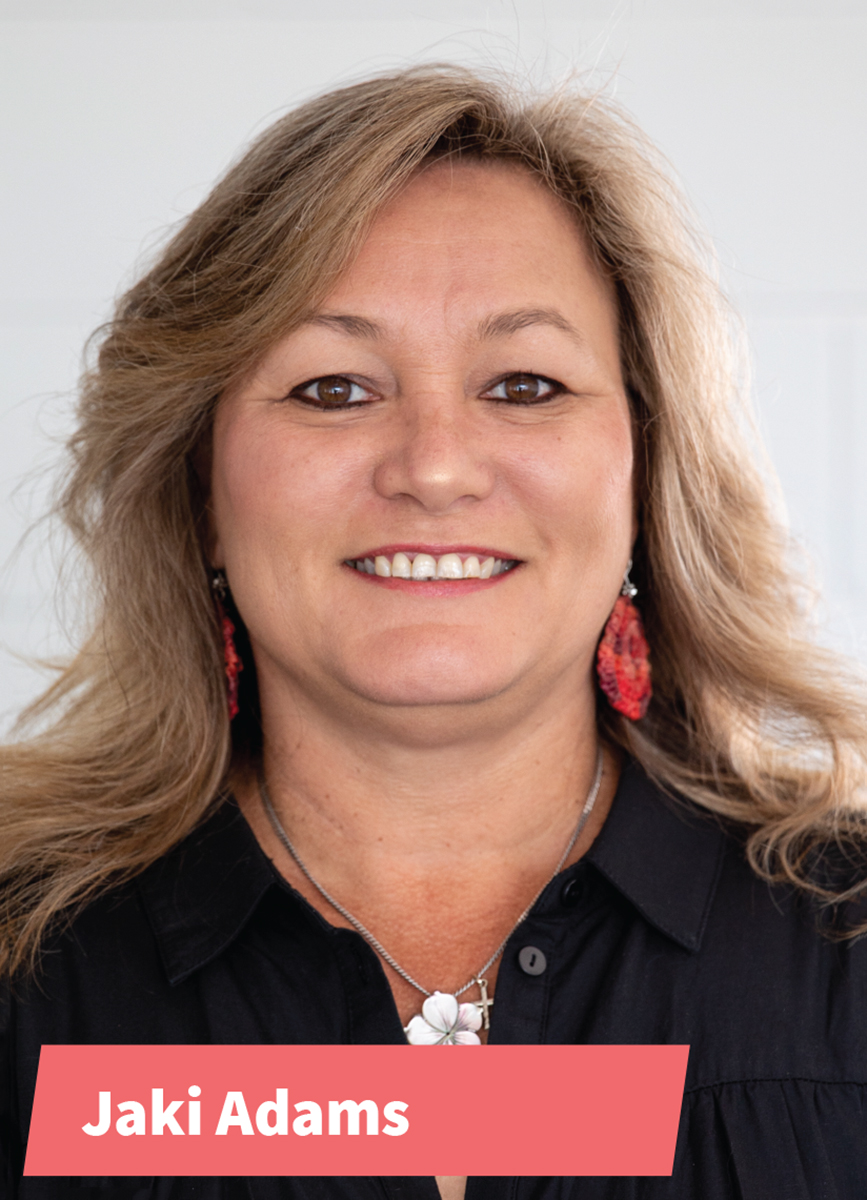
Jaki was born and raised in Garramilla (Darwin), on Larrakia Country, and is of both Aboriginal and Torres Strait Islander descent, with ancestral links to the Yadhaigana and Wuthathi people of Cape York Peninsula, traditional family ties with the Gurindji people, and extended family relationships with the people of the Torres Straits and Warlpiri (Yuendumu).
Jaki has over 25 years’ experience in the government and international development sectors.
Thomas Mayor
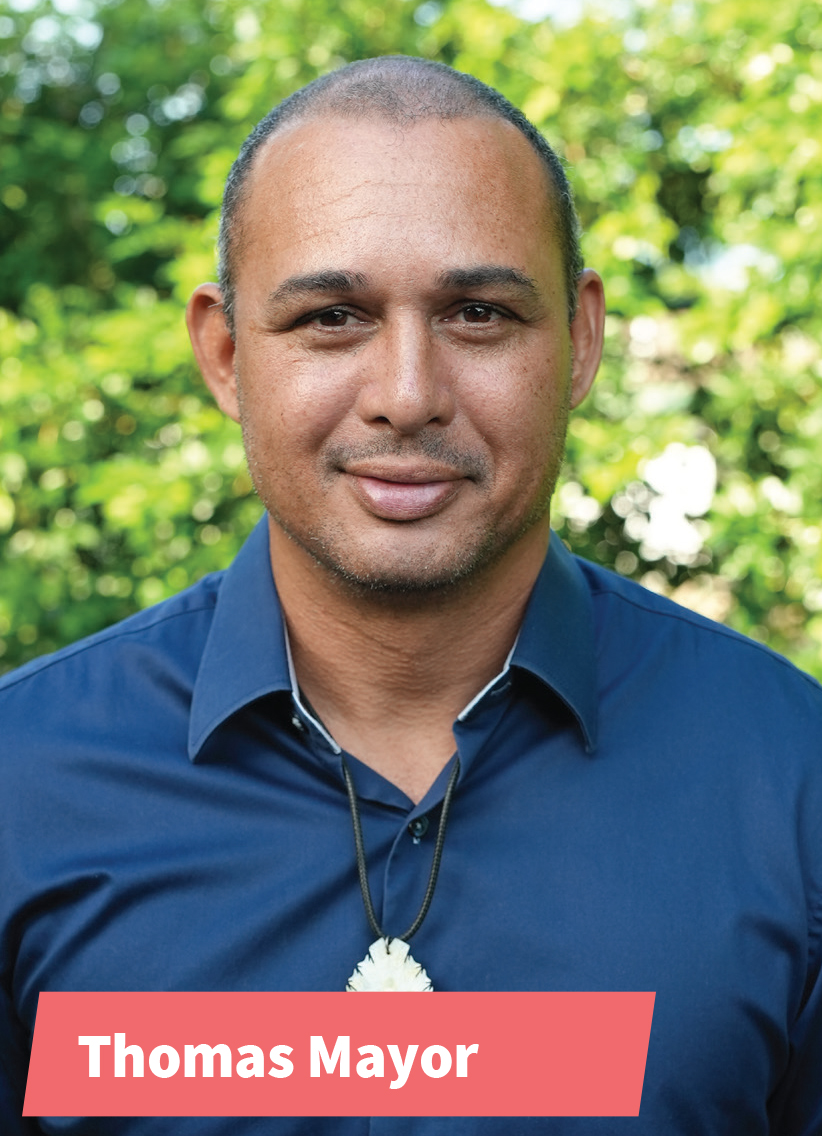
Thomas is a lead campaigner for the Uluru Statement from the Heart proposal for a constitutionally enshrined First Nations Voice and the author of Dear Son – Letters and Reflections from First Nations Fathers and Sons.
Thomas is a Kaurareg Aboriginal and Kalkalgal, Erubamle Torres Strait Islander man.
He was a wharf labourer for sixteen years and is an official of the Maritime Union of Australia, working as the National Indigenous Officer of the union. He is the author of four books as well as essays and articles published in the Griffith Review, the Sydney Morning Herald and The Guardian. His present works cover both historical and contemporary First Nations struggles including his extensive work campaigning for the Uluru Statement from the Heart, biographical narratives, fatherhood, masculinity, love and race.
Thomas continues to passionately advocate for workers rights and for a constitutionally enshrined Voice – the key proposal in the Uluru Statement. He is the Chairperson of the Northern Territory Indigenous Labor Network, advises the Diversity Council of Australia and the From the Heart campaign, and is an executive member of the Northern Territory Trades and Labour Council. His writing journey continues also, with several other books in development with release dates planned for 2023 and 2024.
Nicole Turner
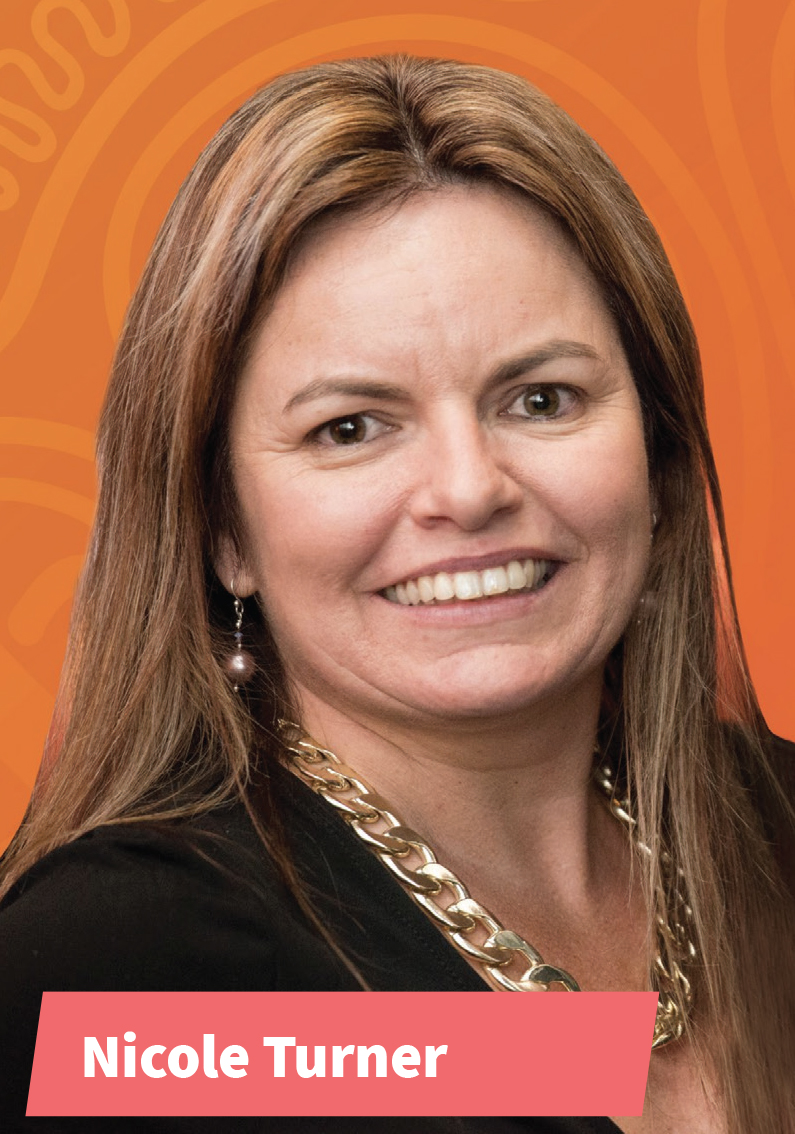
Nicole Turner is a Kamilaroi woman who currently lives in the Hunter area of NSW. She is one of very few qualified Aboriginal community nutritionists in Australia, chairperson of Indigenous Allied Health Australia (IAHA), and an adjunct Professor of Nutrition and Dietetics at University of Canberra. Nicole is the Aboriginal Workforce Engagement Manager at Rural Doctors Network NSW and has worked in the health sector for over 25 years.
Nicole has published numerous papers in international journals and presented at several conferences around Australia and overseas on a variety of topics, especially Indigenous health.
Nicole’s passion is nutrition and living a healthy lifestyle. She believes we need to give knowledge to our people about the importance of maintaining a healthy lifestyle and preventing chronic diseases. She is involved with many national, state and local committees and many organisations around the country.
Summer May Finlay
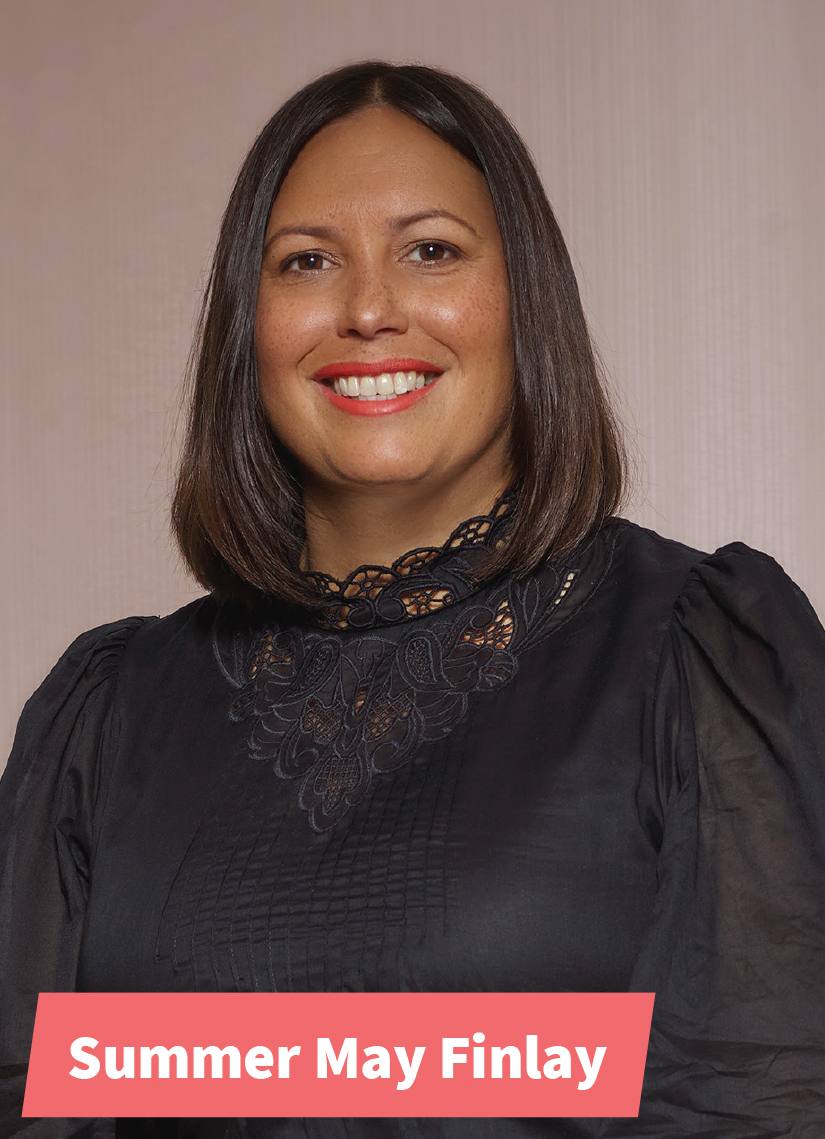
Dr Summer May Finlay (CSCA, TAE, BSocSC MPHA, and PhD) is a Yorta Yorta woman who grew up on Awabakal country (West Lake Macquarie) and is a passionate advocate for Aboriginal and Torres Strait Islander People.
Her passion is what has driven her to work in a number of public health fields including social marketing, communications research and policy.
Summer has worked for a range of organisations in the Aboriginal Community Controlled Health, not-for profit, university and for profit sectors. She is currently employed at the University of Wollongong as a Postdoctoral Fellow on a National Health and Medical Research Council funded project and as a lecturer.
In addition to working as an academic, she also works as a freelancer for organisations such as Croakey Health Media and the Commonwealth Department of Health. She is Co-Chair of the Aboriginal Health and Medical Research Council of NSW Ethics Committee, Co-Vice Chair of the World Federation of Public Health Associations Indigenous Working Group and Deputy Chair of Thirrili, Australia’s only Indigenous suicide postvention organisation. Summer was previously Aboriginal and Torres Strait Islander Vice President for the Public Health Association of Australia and was the Aboriginal Torres Strait Islander Special Interest Group Co-Convener.
She has received three awards from the Public Health Association of Australian for her work in public health and Indigenous health (Presidents Award 2017, Fellowship 2020 and Presidents Award 2021). You can follow her on twitter via her handle @SummerMayFinlay.
This announcement completes the keynote speaker line up for the conference and we are proud and delighted that Summer May Finlay, Thomas Mayor, Nicole Turner and Jaki Adams will be joining us and sharing their knowledge and wisdom. More program details for the conference are available on the Indigenous Eye Health website.
Awards
National Aboriginal and Torres Strait Islander Eye Health Awards 2022
The 2022 National Aboriginal and Torres Strait Islander Eye Health Awards were presented during the Conference Dinner. This is the fifth year in which sector awards are presented, and the second year under the current name.
This year we received an incredible 16 nominations under 4 categories. The selection panel was made up by the Co-Chairs of the Conference Leadership Group and the Chair of the Program Advisory Group. On the night, five awards were presented.
The selection panel noted that the breadth and strength of the nominations received is a testament to the incredible work being undertaken across the sector.
IEHU would like to warmly congratulate all of the 2022 winners of the National Aboriginal and Torres Strait Islander Eye Health Awards.
Congratulations to the 2022 National Aboriginal and Torres Strait Islander Eye Health Awards recipients:
Orange Aboriginal Medical Service for Contribution to Aboriginal and Torres Strait Islander eye health by Aboriginal Community-Controlled Health Organisations (ACCHO).
From the nomination statement: Orange Aboriginal Medical Service have been working, with support from Rural Doctors Network and AH&MRC, on systems to better integrate eye care in clinical practice.
Their services include a retinal screening integrated in every Aboriginal Health Check or Diabetes check to assess the health of the retina and to detect and manage eye conditions and disease. Visual acuity is also measured in every health check and patients are referred accordingly.
Optometry services are provided by optometrist Lauren Hutchinson working with the Brien Holden Foundation, and Orange are reporting that optometry clinics are always fully booked with clients of all ages.
After years of working with the Western NSW Eye Health Partnership Project, including with Jane Hager (another past award winner!), a bulk-billed pathway into ophthalmology treatment has been established for Orange AMS patients. The NSW Eye Health Partnership Project allows Orange AMS to have ongoing contact with service providers and other ACCHOs in the region to best support the regional eye care pathway.
Aboriginal and Torres Strait Islander leadership in eye health: Aboriginal Health Council of South Australia for the leadership of Michael Larkin and Chris Rektsinis in eye health in South Australia, with special allyship mention to Nicholas Schubert of Indigenous Eye Health Unit.
From the nomination statement: In 2021, AHCSA took on the responsibility of coordinating the quarterly run state Indigenous eye health committee – the SA Aboriginal Eye Health Working Group (SAAEHWG). The committee has been professionally run since then with working group sub committee planning sessions and with reference to state level data and the Roadmap to Close the Gap for Vision to guide the priorities and work that has occurred to date.
The leadership provided by Michael Larkin in Chairing the committee and Chris Rektsinis in coordinating the group has been committed to service reform from the start. The underlying principle of this being an action based group that identifies high level gaps in policy, workforce, funding and resourcing has led the work of this group and is already creating real change to improve access to care for the Aboriginal and Torres Strait Islander community in South Australia.
As we mentioned, there is also a special allyship mention to Nicholas Schubert of Indigenous Eye Health Unit. This is also to acknowledge that the award winners and Nick Schubert have actually nominated one another for an award. From the nomination statement, “Nick worked closely in partnership with AHCSA to establish the much needed South Australia Aboriginal Eye Health Working Group (SAAEHWG), whilst concurrently identifying and/or establishing several SA regional eye health collaborations. One advancement from these engagements has been the set-up of several fast-track cataract priority pathways for Aboriginal people in urban and rural areas, and reinforcing the relationships between primary, secondary and tertiary services.
Will Chin, Allyship in contribution to Aboriginal and Torres Strait Islander eye health.
From the nomination statement: Will has been nominated “for his efforts to help improve access to eye care for Aboriginal and Torres Strait Islander people in my community. His efforts go over and above personally delivering eye care and include the donation of equipment, training and upskilling AHWs/AHPs, providing mentoring, and advocating strongly for the redistribution of eye health funding to Aboriginal organisations.”
Will’s generosity and commitment to improving Aboriginal and Torres Strait Islander eye health also extends to building capacity and capability in the ACCHOs he visits by donating/ upgrading equipment, expanding services and responding to the aspirations of the ACCHOs and the communities they represent.
He expects nothing in return and is content with seeing individuals and Aboriginal Organisations succeed in delivering eye care to their communities. And as a true ally, Will would also prefer to remain in the background and instead often assigns credit appropriately, and even uses his position/power to amplify our voice to fundholders. These are the actions of a true ally and an unsung hero.
Mitchell Anjou, Special allyship award for contribution to the Aboriginal and Torres Strait Islander eye health sector.
From the nominations letter: Mitchell lives and breathes the values of the 2022 Conference theme, ‘Our Vision in Our Hands’, genuinely seeking allyship, and to promote and advance First Nations leadership and ownership over the eye health sectors’ work and vision throughout his many spheres of influence. These span his work progressing regional implementation of the Roadmap to Close the Gap for Vision (2012) at the University of Melbourne, his commitments across the optometry sector through Optometry Australia, Optometry Victoria/South Australia and the Optometry Council of Australia and New Zealand (OCANZ), and his engagement with the broader eye health and vision care sector via Vision 2020 Australia.
Across his contributions to the optometry sector in particular, notably as Chair of the Optometry Australia Aboriginal and Torres Strait Islander eye health Advisory Group, and co-Chair of the OCANZ Indigenous Strategy Taskforce, Mitchell has consistently sought to engage and empower First Nations people, through mentorship; the active creation of opportunities which seek to build capacity; and holding space for transfer of power and leadership roles as suitable. Further his personal commitment to ensuring that the optometry profession in particular takes strong steps towards reconciliation in all spheres has established and continues to strengthen progress among leading organisations in the sector.
Lauren Hutchinson, Contribution to Aboriginal and Torres Strait Islander eye health (Individual).
From the nominations letter: Lauren is a valued graduate member of IAHA who is extremely generous with her time and knowledge, supporting positive health and wellbeing outcomes for Aboriginal and Torres Strait Islander people and rural Australians.
Lauren has contributed significantly to the work of IAHA, including through her representation on committees, such as the Vision 2020/NACCHO Roundtable on Eye Health and Vision Care, and through her input on national health policy consultations. Lauren’s expertise in Aboriginal and Torres Strait Islander eye health and her personal and professional experience working in a rural setting, allows IAHA to develop and inform policy to achieve true equity in health care.
As a student Lauren sat on the IAHA Student Representative committee playing an important role in building and promoting allied health workforce development and contributing to IAHA’s vision that all Aboriginal and Torres Strait Islander people, including future generations, are healthy, strong, thriving and self-determined.
Lauren is passionate about contributing to her local community. She believes in quality health care in rural areas. This is evidenced by her returning to her home town after uni and started work as an optometrist in Forbes. She has started a school screening program in her local area after noticing that the local Aboriginal kids weren't accessing the eye testing service. Lauren goes above and beyond to work with and for her community, including as a role model to future Aboriginal and Torres Strait Islander optometrists.
See full Awards image gallery here
See full conference image gallery here
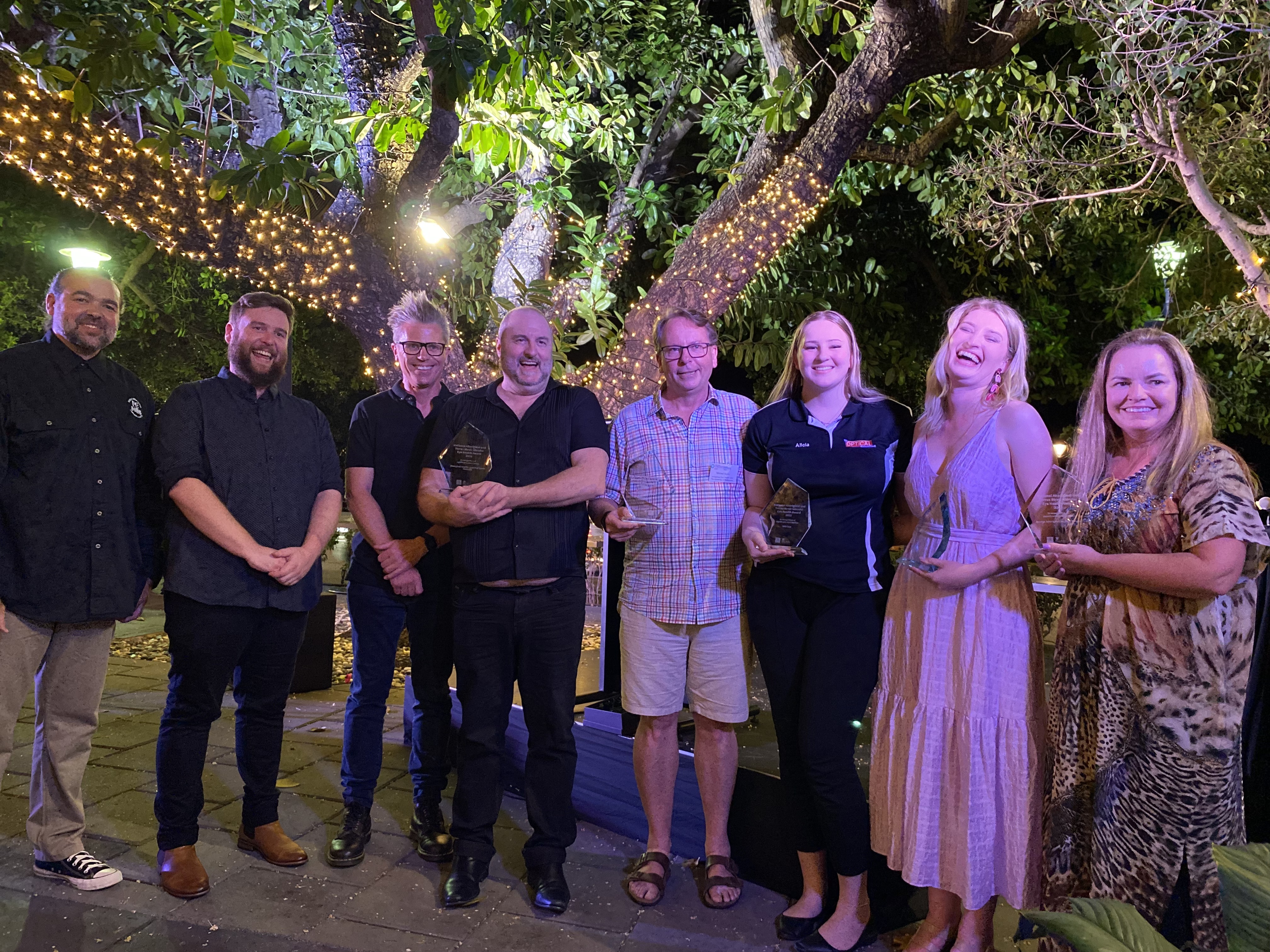
Award Nomination have now Closed
The 2022 National Aboriginal and Torres Strait Islander Eye Health Awards
Award Nominations
The 2022 National Aboriginal and Torres Strait Islander Eye Health Awards recognise achievements and contributions in Aboriginal and Torres Strait Islander eye health. Formerly known as the Leaky Pipe Awards, the sector awards have taken their new name via a vote of delegates at the Conference dinner and awards ceremony in the 2021 online conference.
The awards are aligned with the Conference theme – Our Vision in Our Hands – set by the Aboriginal and Torres Strait Islander Conference Leadership Group. This broad theme recognises work to improve access to eye care for Indigenous Australians that have an element of promoting and advancing Aboriginal and Torres Strait Islander leadership and ownership over the sector’s work and vision.
We are pleased to open nominations for the 2022 awards, in the following categories:
- Contribution to Aboriginal and Torres Strait Islander eye health by Aboriginal Community-Controlled Health Organisations (ACCHO)
- Contribution to Aboriginal and Torres Strait Islander eye health (Individual)
- Aboriginal and Torres Strait Islander leadership in eye health
- Allyship in contribution to Aboriginal and Torres Strait Islander eye health
We are particularly interested in identifying and acknowledging the many ‘unsung heroes’ in Aboriginal and Torres Strait Islander eye health.
The 2022 National Aboriginal and Torres Strait Islander Eye Health Awards will be presented during the National Aboriginal and Torres Strait Islander Eye Health Conference 2022 on Larrakia country in May 2022.
Selection criteria
Selection criteria for the awards include a significant contribution and demonstrable outcomes to improve eye health for Aboriginal and Torres Strait Islander Australians.
Achievements will be measured against a broad range of criteria, and can include making a difference in eye health within a clinic, community or region, participation and support for eye care improvements, supporting implementation of the Roadmap to Close the Gap for Vision and Strong Eyes, Strong Communities and contributions to other programs and initiatives within the Aboriginal and Torres Strait Islander eye health sector.
The Conference theme, Our Vision in Our Hands, will also be reflected in the selection process.
The selection committee for the 2022 awards is comprised from the co-Chairs of the Aboriginal and Torres Strait Islander Conference Leadership Group and the Chair of Conference Program Advisory Group.
Nominations
The nomination requires
- a 300-word maximum statement in support the individual, group or organisation that is being nominated
- name and contact details of a supporting referee
- name and contact details of the person making the nomination
Nominations Close, COB 22/4/2022
For questions, additional information, or support with your nomination, please contact us at Indigenous-EyeHealth@unimelb.edu.au or contact IEH staff Guy Gillor guy.gillor@unimelb.edu.au or Rachael Ferguson rlf@unimelb.edu.au
Image Gallery
Conference Program
See below for an outline of the structural framework across the three days of the conference.
Conference Recordings
See below recorded presentations from the Conference.
HUGH TAYLOR
GEMINA CORPUS
JAKI ADAMS
SHAUN TATIPATA
THOMAS MAYOR
TANYA MORRIS
GAVIN BROWN & ROSIE DAWKINS
COURTNEY HAMMOND & TONI SHEARING
TESSA SAUNDERS & NICK WILSON
Abstracts
Abstract Submissions have now closed
Call for Abstracts: National Aboriginal and Torres Strait Islander Eye Health Conference 2022
Abstract Submissions
Abstract submissions are now open for the 2022 National Aboriginal and Torres Strait Islander Eye Health Conference (NATSIEHC22).
The NATSIEHC22 will be held on 24-26 May 2022, and we are inviting abstract submissions for Oral, Tabletop, Workshop and Poster presentations in Aboriginal and Torres Strait Islander eye health.
We welcome abstracts from all working in or interested in improving Aboriginal and Torres Strait Islander eye health. Abstract submissions from Aboriginal and Torres Strait Islander presenters and co-presenters will be prioritised.
Conference Theme
The theme for this year's conference is Our Vision in Our Hands representing Aboriginal and Torres Strait Islander leadership and ownership of eye health.
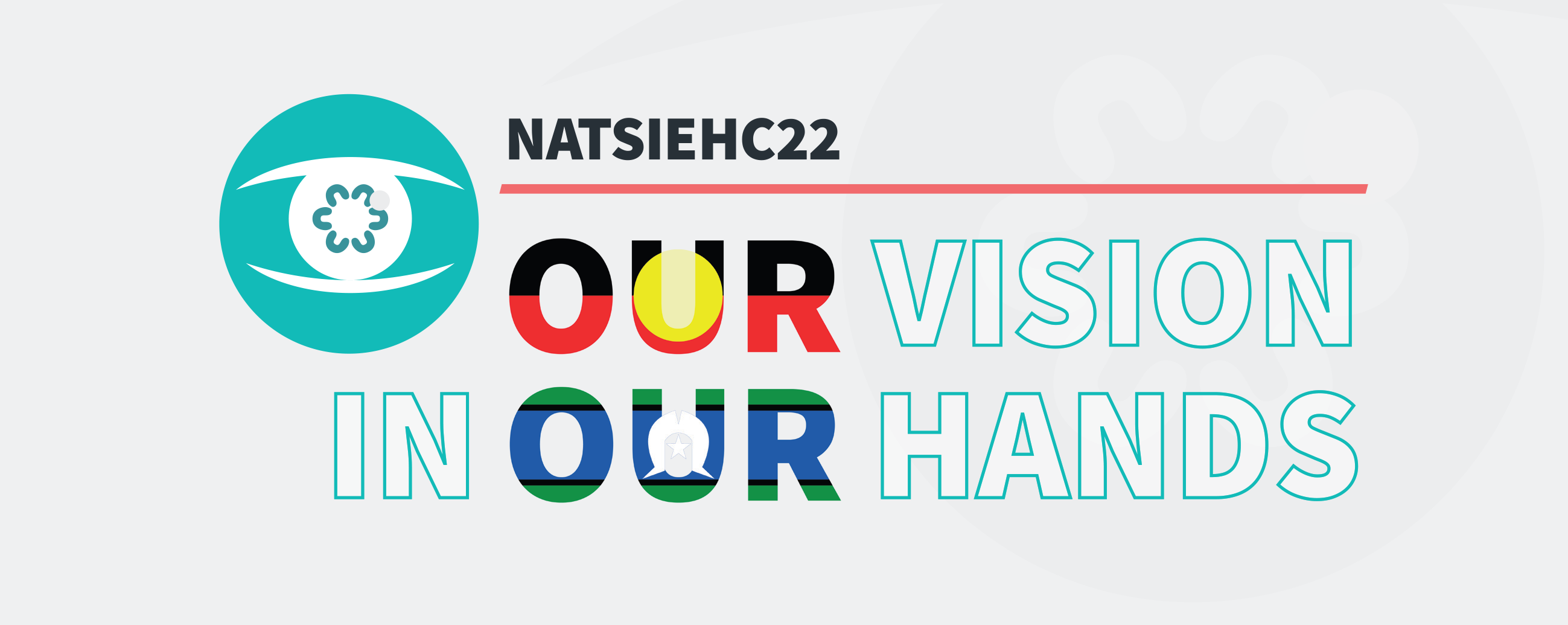 Background: The conference theme for 2022 has been set by the Aboriginal and Torres Strait Islander Conference Leadership Group overseeing NATSIEHC22 and invites consideration of how best to approach efforts to close the gap for vision and end avoidable vision loss and blindness. It calls for greater leadership and ownership of eye health by Aboriginal and Torres Strait Islander people along with the shift in power that is necessary to produce the outcomes that we are all working towards.
Background: The conference theme for 2022 has been set by the Aboriginal and Torres Strait Islander Conference Leadership Group overseeing NATSIEHC22 and invites consideration of how best to approach efforts to close the gap for vision and end avoidable vision loss and blindness. It calls for greater leadership and ownership of eye health by Aboriginal and Torres Strait Islander people along with the shift in power that is necessary to produce the outcomes that we are all working towards.
The activities delivered as part of this theme will support the sector to purposely move towards assuming the roles that are required to advance eye health outcomes for Australia’s First Peoples.
For Aboriginal and Torres Strait Islander delegates the conference will aim to empower, inform and inspire, enabling First Nations peoples to play a key role in leading the eye health initiatives designed to improve eye health outcomes in their communities. For non-Aboriginal and Torres Strait Islander delegates, the conference will aim to deliver knowledge, guidance and some practical skills to help shape their future contribution to ending avoidable blindness. This will include seeding some early ideas on how they, their colleagues and their non-Aboriginal and Torres Strait Islander organisations may wish to begin adjusting their approaches to supporting eye care. The goal is to permeate the thinking across all levels of the sector from the national policy landscape to funding bodies, service providers and the communities themselves.
Topics of Relevance
Topics should be relevant to Aboriginal and Torres Strait Islander eye health, and support the 2022 conference theme. Topics for abstracts could include: Aboriginal and Torres Strait Islander leadership of eye care; community-led approaches to improving eye health outcomes; effective commitment, communication, and advocacy in eye care; working collaboratively and interculturally to improve eye health; cultural safety in eye care and in the eye health and vision sector; eye care in the primary health care setting; community and/or cultural engagement initiatives; workforce development; overcoming challenges in coordination and case management; improving outcomes and access to services; health system changes and reform.
If you are interested in presenting your work, please submit your abstract below. The closing date for abstract submission is Friday 25 February 2022.
We hope to see you at the conference and thank you for considering sharing your experience and knowledge.
Key Dates
| Call for Abstracts Open | Monday 20 December 2021 |
| Call for Abstracts Close | Friday 25 February 2022 |
| Acceptance Notification | Friday 25 March 2022 |
Presentation Types
The 2022 conference will include opportunities for presentation in several formats. Additional details to support preparing your presentations will be provided.
You may indicate your preferred format with your submission. Please note that there are limited spaces available for each type of presentation, and the organisers may propose a different abstract format than proposed by the authors.
- Oral presentation: up to 20 minute presentations, with or without slides.
- Table Top presentation: An opportunity for sharing of information and exchange in a smaller group setting. Each Table Top presentation will be for up to 10 minutes only, including questions and discussion, and repeated in front of changing group of delegates.
- Workshop: suitable for skill-sharing and practical knowledge exchange, and will be allocated up to 90 minutes.
- Poster presentation: The conference also welcomes posters, which will be displayed throughout the conference.
Abstracts should be a summary of the presentation with no more than 200 words (not including title and authors).
Submission Instructions
- Please submit an abstract of up to 200 words, and a title (no more than 15 words);
- Please include a short bio for each presenting author (no more than 50 words);
- Preference will be given to abstracts with Aboriginal and/or Torres Strait Islander presenters and co-presenters;
- Please indicate whether you prefer to deliver your paper as an Oral, Table Top, Workshop or Poster presentation;
- Please complete an additional submission form for each abstract;
- The deadline for abstracts is Friday 25 February 2022.
For questions, additional information, or support with your submission, please contact us at Indigenous-EyeHealth@unimelb.edu.au or contact IEH staff Guy Gillor guy.gillor@unimelb.edu.au or Rachael Ferguson rlf@unimelb.edu.au
Conference Theme
The theme for this year's conference is Our Vision in Our Hands representing Aboriginal and Torres Strait Islander leadership and ownership of eye health.
 Background: The conference theme for 2022 has been set by the Aboriginal and Torres Strait Islander Conference Leadership Group overseeing NATSIEHC22 and invites consideration of how best to approach efforts to close the gap for vision and end avoidable vision loss and blindness. It calls for greater leadership and ownership of eye health by Aboriginal and Torres Strait Islander people along with the shift in power that is necessary to produce the outcomes that we are all working towards.
Background: The conference theme for 2022 has been set by the Aboriginal and Torres Strait Islander Conference Leadership Group overseeing NATSIEHC22 and invites consideration of how best to approach efforts to close the gap for vision and end avoidable vision loss and blindness. It calls for greater leadership and ownership of eye health by Aboriginal and Torres Strait Islander people along with the shift in power that is necessary to produce the outcomes that we are all working towards.
The activities delivered as part of this theme will support the sector to purposely move towards assuming the roles that are required to advance eye health outcomes for Australia’s First Peoples.
For Aboriginal and Torres Strait Islander delegates the conference will aim to empower, inform and inspire, enabling First Nations peoples to play a key role in leading the eye health initiatives designed to improve eye health outcomes in their communities. For non-Aboriginal and Torres Strait Islander delegates, the conference will aim to deliver knowledge, guidance and some practical skills to help shape their future contribution to ending avoidable blindness. This will include seeding some early ideas on how they, their colleagues and their non-Aboriginal and Torres Strait Islander organisations may wish to begin adjusting their approaches to supporting eye care. The goal is to permeate the thinking across all levels of the sector from the national policy landscape to funding bodies, service providers and the communities themselves.
Organisational Structure
2022 Conference Organising Structure
The organising structure continues to evolve with the Conference. In 2022, IEH is committed to strengthen the Aboriginal and Torres Strait Islander leadership of the Conference, while still facilitating wider sector input into the program.
Please see below the 2022 Conference organisational chart.

Travel & Accommodation
We understand that it is still an uncertain time to travel and congregate with the COVID-19 pandemic, however we are planning an in-person COVID safe event, adhering to social distancing and density limits as per Northern Territory government guidelines and mandates.
We also encourage delegates to think about booking their accommodation sooner than later. Darwin in May is entering the dry season and it can be a popular time for tourists with accommodation booking out quickly.
IEH have teamed with NT Tourism and have been able to secure some flight and hotel discount codes.
Location:
The conference will be hosted at DoubleTree by Hilton Hotel Esplanade Darwin
Flights:
Virgin Australia have flight specials to Darwin. The flights are for travel dates between 5 January 2022 – 28 June 2022.
Tourism Top End:
If you are staying in the Top End for a little longer, visit Tourism Top End for travel, tours, cultural activities and more.
Accommodation:
Note, most of these bookings will need to be made over the phone in order to apply the discount code.
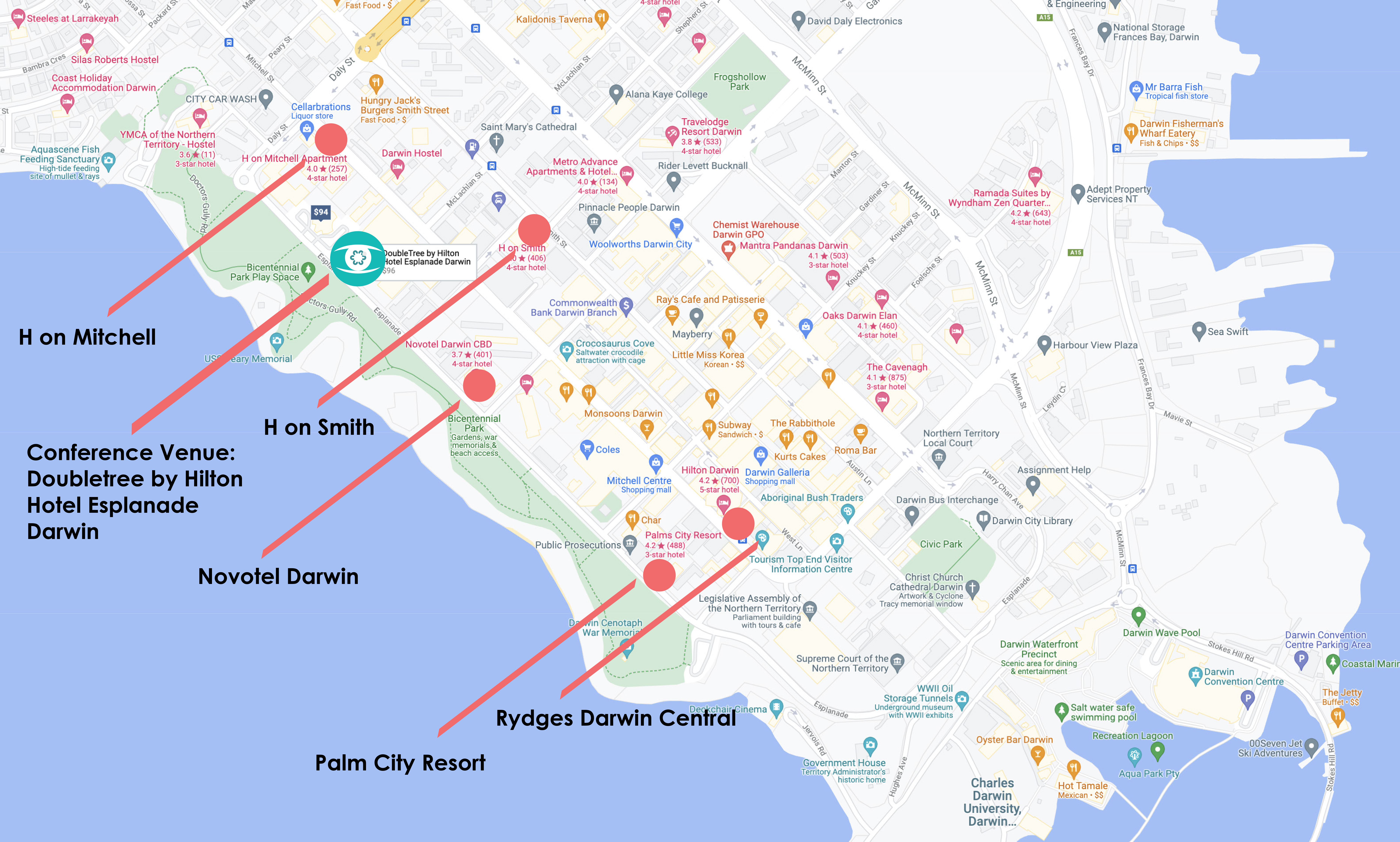
Hotel | Room Type | Rate | Booking Code |
| DoubleTree by Hilton Hotel Esplanade Darwin | King or Double | Doubletree have 30 rooms available, bookings must be between 23-27 May only | Double Tree Discount link |
| Standard Queen or Twin Queen | $185.00 Per room per night, based on single, twin or double occupancy | NATSIEH | |
| Novotel Darwin | Standard Room or Junior Suite | Standard Room: $229 Junior Suite: $279 | NATSIEH |
| H on Smith | King Suite, King Twin | Room Type 1: King Suite (Hotel room only) $195.00 per night Room Type 2: King Twin (hotel Room only) 2 x single beds (twin share) $195.00 per night | EHCHOS2022 |
| H on Mitchell | Studio Room, One Bedroom apartment, Two Bedroom Apartment | Room Type 1 – Studio Room $202.00 per night Room Type 2- One Bedroom Apartment $248.00 per night Room Type 3-Two Bedroom Apartment $332.00 per night | EHCHOS2022 |
| Palm City Resort | Standard Room, Superior Room, Superior Room with Balcony, Garden Bungalow | Standard Hotel room: $155 per night Superior Hotel Room ground floor: $170 per night Superior Hotel Room with Balcony: $180 per night Garden Bungalow: $180 per night | NATSIEH conference |
